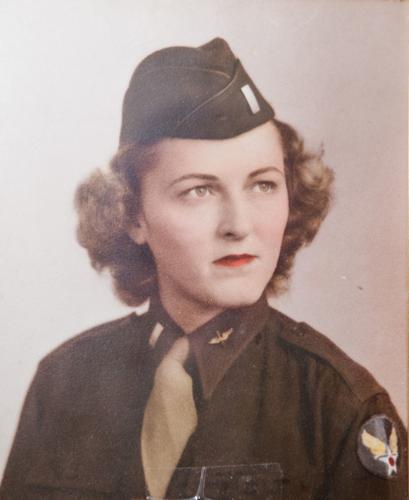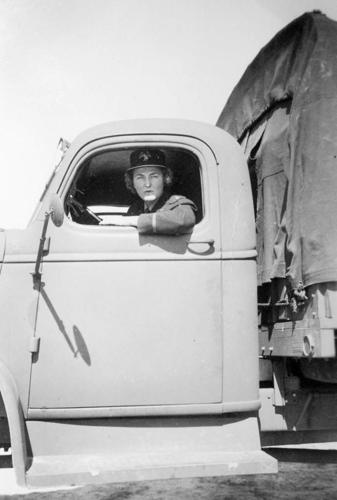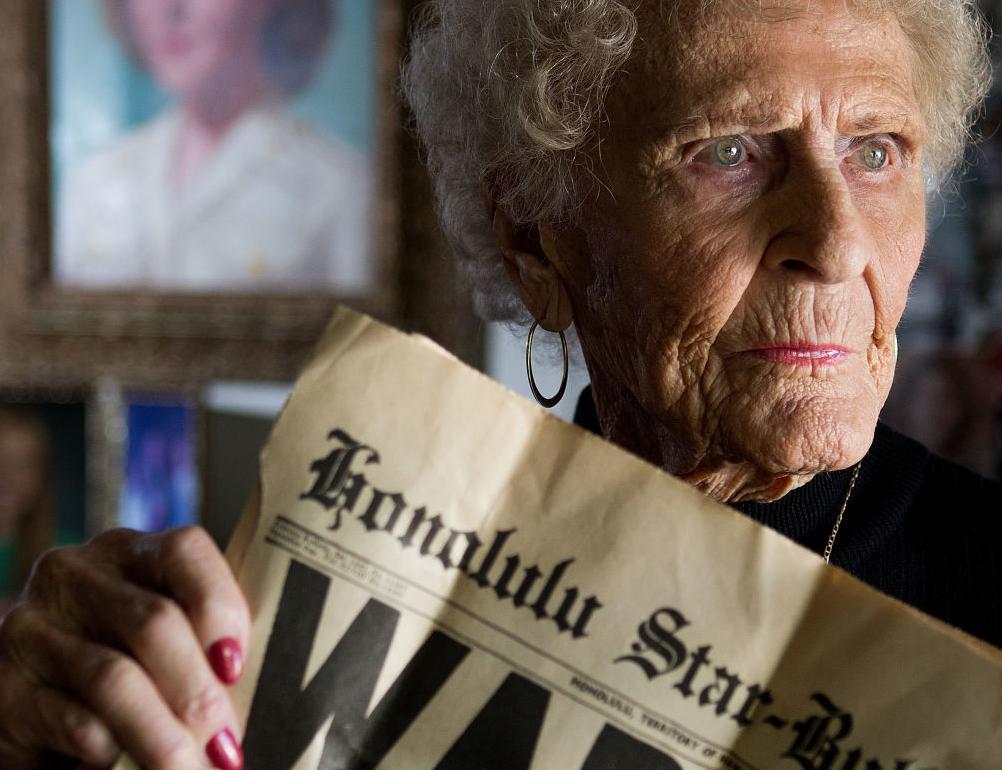Last month, 98-year-old Gwen Niemi decided to downsize at her Tucson home.
While going through her old things — mostly junk, she says — she came across a newspaper stashed in her closet.
But it wasn’t just any newspaper.
It was a 77-year-old edition of the Honolulu Star-Bulletin dated Dec. 7, 1941 — the day Pearl Harbor was bombed. Niemi says she was surprised it didn’t crumble when she unfolded it.
The newspaper was Niemi’s father’s, but she isn’t sure where he got it. She didn’t even know she had it.
“Finding anything else that old isn’t really exciting,” she says.
Niemi can’t remember exactly what she was doing on the day of the attack, but she was in Pennsylvania at the time. The attack, which killed thousands, inspired her to enlist in the U.S. Army Air Corps in 1942.

Gwen Niemi rose to the rank of captain in the Women’s Army Auxiliary Corps.
“It was such a shock,” she says. “I had just finished college. I grew up during the Depression and we went through some bad years. My dad lost his business and we lost our home.”
She worked summer jobs while in high school, even taking a factory job once.
“I hated it with a passion, but it paid good money,” she says, adding that she knew she didn’t want that kind of job ever again.
So, after finishing college at the age of 21, Niemi heard that the Women’s Army Auxiliary Corps was starting.
She decided to sign up, but her dad wasn’t happy about it.
“Do you think I would’ve signed up if I thought I would fail?” she told him.

Gwen Niemi drove a truck before she became a company commander during World War II.
And she most definitely didn’t fail. Far from it.
In 1942, Niemi applied for Officer Candidate School and was one of the first 200 women to make it through.
She served in many cities, primarily on the East Coast, before requesting a discharge in 1946.
“After the war was over, they had less and less need for women,” she says, adding that she ended her service as a captain.
After leaving the military, she moved to Tucson and taught physical education at the University of Arizona for four years and started a family in 1951.







